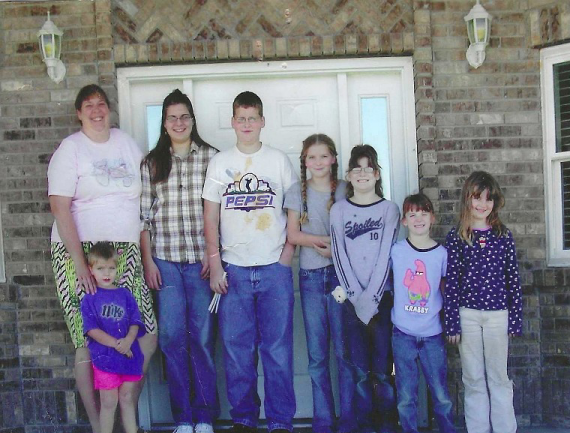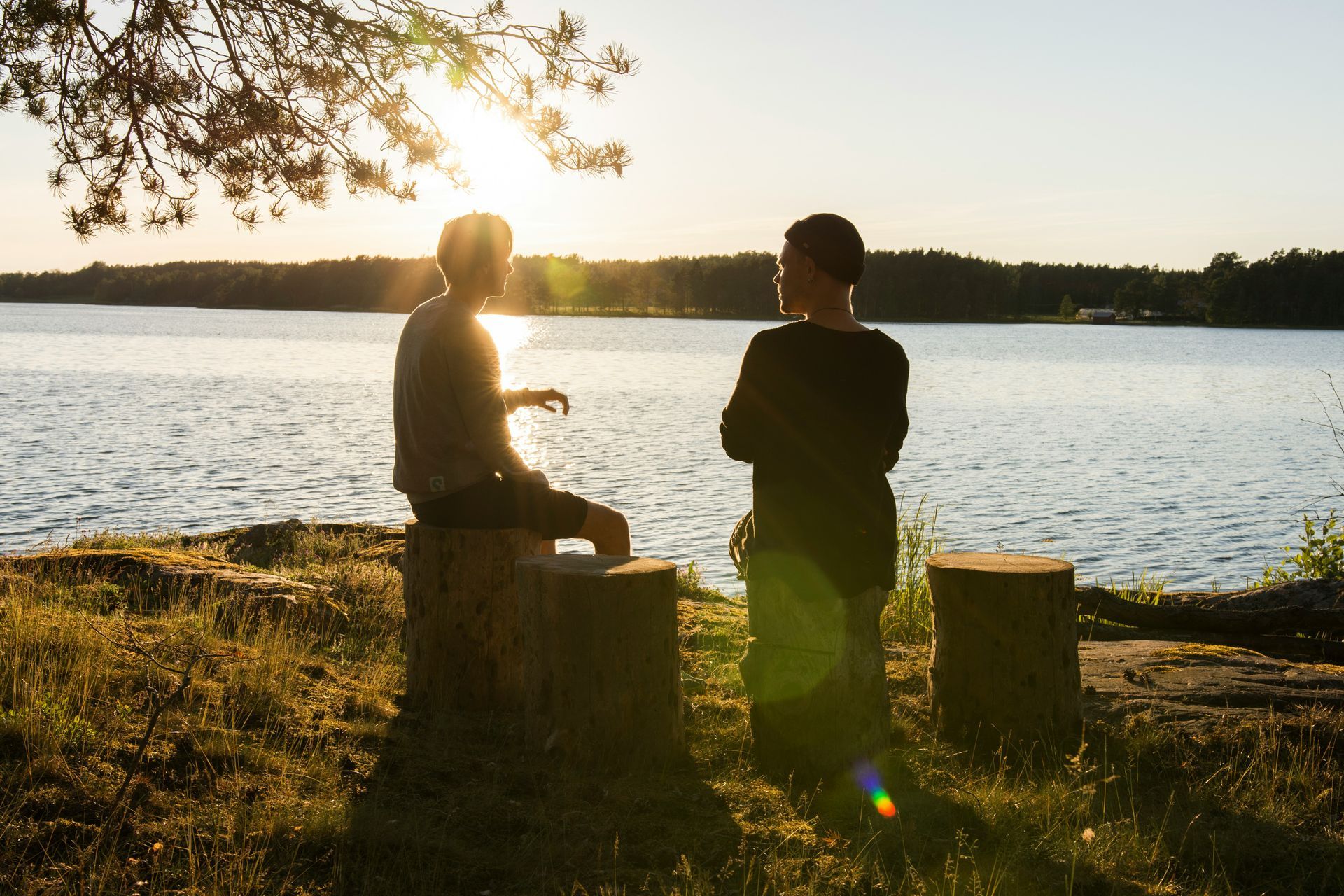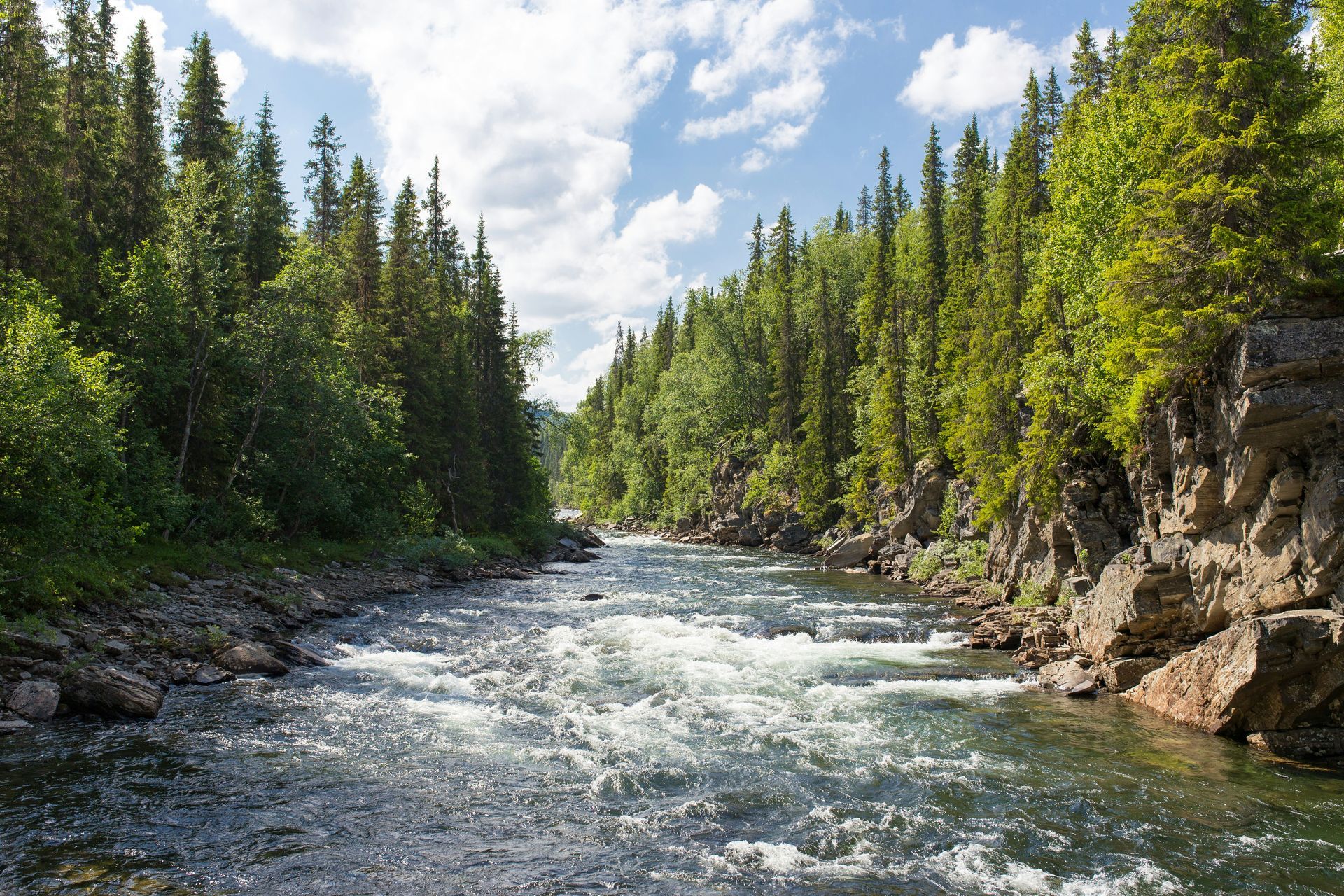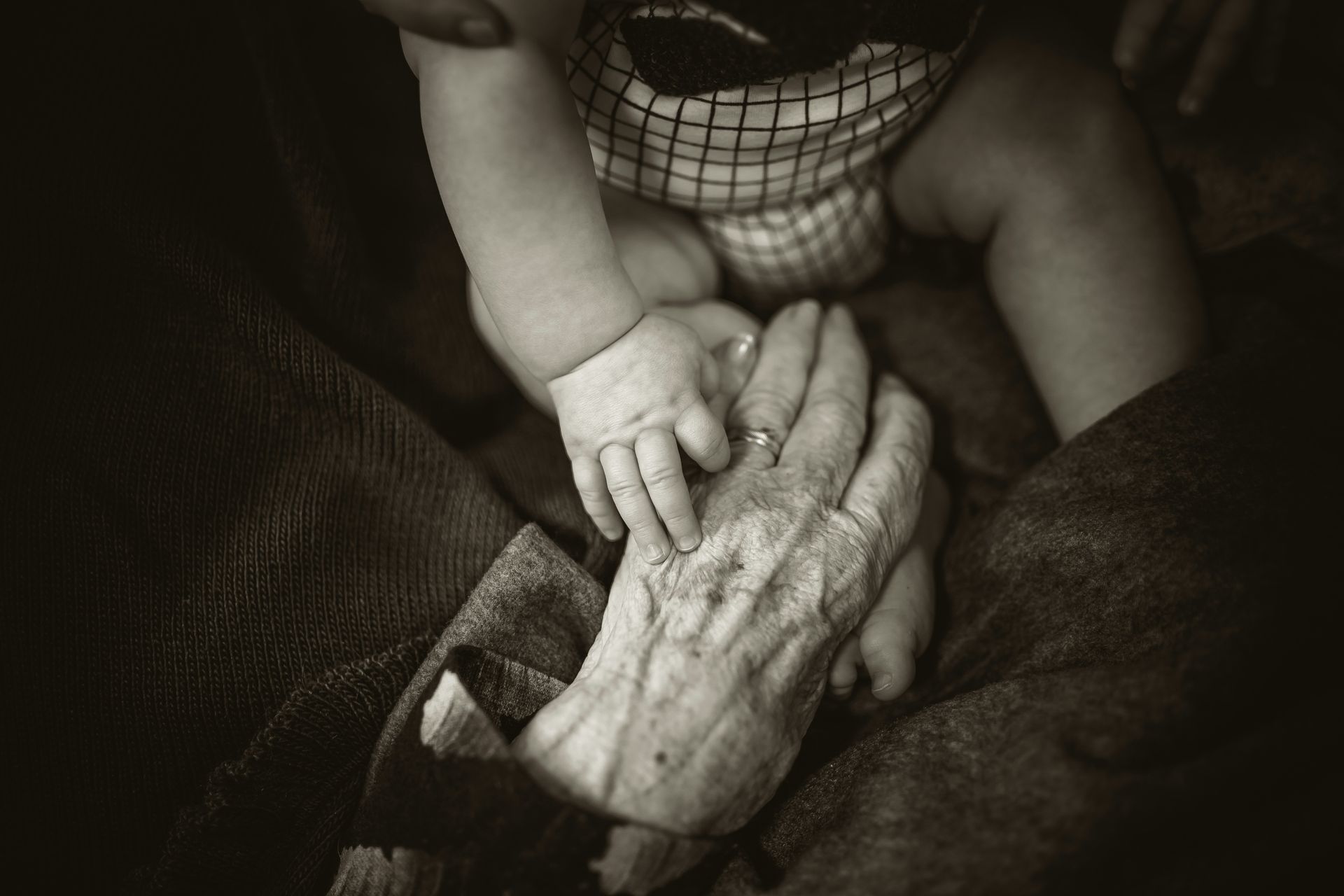Blog

Hi friends, A couple of weeks ago, an article in the Wall Street Journal caused a big buzz in my world. Read it here if you missed it. Here’s the CliffsNotes version: more and more people are recording their personal histories before they die, in books meant for their descendants. The idea is to capture life experiences, lessons learned, and the values that guided them. The article highlighted several companies offering commissioned books, with price tags ranging from $12k to $100k. Although my company wasn’t specifically mentioned, I was tagged multiple times on social media about the piece and had several clients message me directly. I love this kind of publicity. Yay for getting the word out about personal history! And yet, the article’s message got me thinking. Everything I see about personal history is based around writing a book. Here’s something I want you to hear: When it comes to recording your story, you don’t actually need to write a book. I know—that may sound shocking coming from me. After all, I make my living writing books for families, just like the ghostwriters mentioned in the article. But in almost twenty years as a professional historian, academic, and storyteller, I’ve learned some things. One of them is that the value of your story isn’t in the quantity of what you leave behind—it’s in the quality. Not all stories are created equal. Some details matter far more than others when it comes to actual positive impact for your descendants. For instance, it might not be very important for your grandchildren to know the story of how your classmate dumped applesauce on your head in third grade. But it is crucial for them to know where you grew up and how your parents raised you. Likewise, the ins-and-outs of your career ladder matter far less than why you chose your field, or how you overcame challenges or made decisions in your work life. Your feelings about your colleagues are far less important than your feelings about your spouse and children. In short: the stories that matter most are the ones that build identity, character, and belonging. Now, I realize hearing this could feel a bit defeating. After all, how are you supposed to know what is most important to record, and what stories could be left on the threshing room floor? Don’t worry—I’ve got your back. After writing nearly a thousand life stories, conducting hundreds of interviews, and burying myself in the research, I’ve distilled it down to three essentials—three things you must record if you want to leave a meaningful legacy: Your History Your Journey Your Voice Let me explain. 1. Your History Even if you don’t feel deeply connected to your past, it’s vital to record where and who you come from. The names, dates, and small details of the generations before you (parents, grandparents, and great-grandparents) matter more than you might imagine. If you have personal memories of those individuals, by all means, please include those too. Heritage creates belonging, identity, and context to ones life. It’s rather amazing how sometimes genes or propensities which show up from generation to generation can bring a sense of belonging to a younger family member experiencing those same things. The bottom line: heritage matters. 2. Your Journey When it comes to recording your experiences, it’s helpful to think of your life as a hero’s journey. You came into existence, were called to adventure, faced trials, overcame obstacles, and arrived where you are today—changed and wiser. The point with the journey isn’t only to share the highlights and proud moments of your life, but to share the troubles and challenges too, along with the tools that have helped you be successful—your principles and values. People don’t relate to perfection, they relate to realness. So show your loved ones who you are—a regular person trying their best to conquer life—and share the tools that helped you make it through. Your loved ones will learn more from your honesty than your accolades. The bottom line: the hard chapters usually shape us the most. 3. Your Voice Here’s the one that surprises people: of all the treasures you could leave behind, the most cherished is often the simplest—your voice. In fact, the #1 prized possession I hear from people who have lost a loved one is a saved voicemail from that person—just hearing their name spoken aloud, with love by the person they love, is irreplaceable. So along with recording the story of where and who you come from, the ups and downs you’ve had and the tools you’ve used, you also need to leave a recording of yourself talking to your loved ones individually. Call them by name, tell them you love them, tell them how proud you are of them. Keep it positive, succinct, and for goodness’ sake—save it somewhere permanent and accessible! The bottom line: your family will always want to hear you say “I love you.” There you go--that's it. Even if you never commission a book or produce a feature-length legacy film, if you capture these three essentials—your history, your journey, and your voice—you’ll leave behind a priceless gift that will bless your family for generations. I hope this helps take some of the weight of leaving your story off your shoulders. And, even better, I have some tools to help you. I’ve created a DIY Legacy Guide that walks you step by step through this process. You can access it here. If DIY isn’t your style, don’t worry—I’ll have an exciting announcement soon about another way I can help. For now, I hope this lifts some of the weight off your shoulders. Leaving your story doesn’t have to be overwhelming. Start with these essentials, and you’ll be well on your way to leaving your family one of the greatest inheritances of all—identity, belonging, and knowing they are loved forever. Happy legacy-leaving, Kasia

Hi my legacy-minded friends, I started Everyday Legacies five-and-a-half years ago, but it’s struck me that I’ve never shared much about how it all began. In the world of personal history companies, my story is a little unusual, so I thought you might enjoy hearing it. First off, if you had asked me six years ago if I wanted to run my own business, my answer would most likely have been no. Starting a business is scary. It’s uncertain, it’s a lot of work, and I’d only ever known a few people pull it off successfully. Entrepreneurship runs in my family, but successful entrepreneurship? Not so much. So, I had doubts. And I hesitated. But eventually, I couldn’t ignore the calling I felt inside. By training, I’m a historian. My research specialty is German history in the South Pacific—specifically, Tonga and Samoa. For more than a decade, I studied identity among mixed-race European/Pacific peoples and published several books and articles about it. Honestly, I thought I’d stay tucked away in research forever. I loved it, I could nerd out on it endlessly, and someday, I still plan to write more about it—including a book about Tongan immigration to the U.S. But here’s what was funny: no matter what topic I studied, it always seemed to come back to people’s stories, and their family’s stories. I'll give you an example. In the last part of my PhD, I did a comparative study between descendants of Germans in Tonga and Samoa. My research questions were all about migration patterns and the effects of Euro-Pacific miscegenation. But when you strip away the academic language, what it really came down to was this: someone got a job and took a chance. Someone fell in love and got married. In the end, history comes down to individuals and families making decisions that ripple outward. As Ralph Waldo Emerson so eloquently put it: “There is properly no history; only biography.” (Leave it to Emerson to say in eight words what it took me 300 pages to explain!) And there was another thread. Beyond the individual choices shaping history, I kept seeing how knowing one’s family stories affected family members. My research was focused on descendants of prominent mixed-race families—think professional athletes, government leaders, business moguls, etc. The unexpected theme I witnessed came down to what they knew about where and who they came from. Specifically, there was a quantifiable positive correlation between what they knew or believed about their heritage and how successful they were. That insight lined up with other great research on the power of family stories—showing just how much identity , resilience , and well-being are strengthened when people know their family’s past. Together, the two truths I discovered about personal history compelled me towards the great work of helping to actually capture those stories. And still there was another parallel track to this journey: I also have a heart for entrepreneurs. When I was a sophomore in college, I started working at a small software company, first as office help and then as a technical writer for four years. The owner had bootstrapped his startup, and in the time I was there, I watched him grow it from just a handful of employees to dozens. Eventually, after I left, he sold an offshoot in an acquisition that changed his family’s life. In less than a decade, they went from lower-middle-class to high-net-worth—and experienced all of the challenges that came with that. In particular, I saw the weight the wealth creator carried. How do you keep your kids grounded, grateful, humble, and hardworking when material needs are easily met? How do you teach them to be contributors when a job or career path doesn’t have to be a foregone conclusion? As much as money is a privilege, it can also bring challenges that aren’t easy to understand from the outside. That’s where I found the perfect intersection of my work and personal passions. What if there was a way I could help high-and ultra-high-net-worth individuals and families with the challenges they faced—questions of identity, continuity, connection, and values? What if I could help them preserve their real legacy—their history, character, and wisdom? At first, I felt I was alone in this vision. But since then, I've discovered a whole wonderful community of people dedicated to holistic wealth preservation: purposeful estate planners, family advisors, rising-gen educators, and others like me—fellow storytellers and personal historians. Together, we focus on preserving not just financial assets, but qualitative capital —the intangible wealth that brings meaning, identity, strength, and connection to generations within a family. With the idea that your true legacy is something you’re leaving every day , I named my company Everyday Legacies, and officially launched on 1 March 2020 (yes, that March 2020—I know, my timing was impeccable). Since then, we’ve grown year over year. We’ve completed nearly four dozen projects, touching the lives of hundreds of people. Along the way, I’ve worked with clients facing cancer, heart disease, strokes, and dementia (those are the hardest projects, and I always wish we could have begun sooner!). Several clients have already passed away since we completed their stories. I feel unspeakably grateful to have helped capture their voices before it was too late, and so proud of the work we've done. Today, I can honestly say I have the best job in the world. Though I never imagined myself as a business owner, I can’t picture a better life than this. I get to work with incredible, inspiring people, doing work that is meaningful and lasting. It is so fulfilling. To everyone reading—thank you for your interest in our work and for supporting this mission. Thank you for being part of my journey. Whatever you take from this story, I hope you’ll remember this one thing: your story is your legacy . Make sure it’s a good one. Sincerely, Kasia

Me with Republic Capital's Candace Langston and Amy Cunningham after the FEW meeting in the Rainbow Room at Rockefeller Center Did you know there’s a huge discrepancy in the number of women’s stories being told/recorded versus men’s? Here are some of the statistics I shared: In schools, only 24% of named historical figures in U.S. K–12 curricula are women—and when they are included, they’re often defined by domestic roles rather than leadership or innovation. On Wikipedia, the largest source of biographical information in the world, less than 1 in 5 biographies are about women, and women’s bios are more likely to be left incomplete or flagged for deletion. In publishing, women’s autobiographies and memoirs are consistently underrepresented (just take a look at the nonfiction shelves at your local bookstore!). In major reference works, historically 5% or less of entries are about women—despite the fact that we make up half the population. I’ve seen this imbalance in my own work. Of the nearly 1,000 life stories I’ve written, less than 15% have been about women —and only one was commissioned by the woman herself. The rest were initiated and paid for by family members. When I meet ultra-successful men to talk about writing their stories, I often ask if their wives are doing the same. The answer is usually no. Why? I think it’s because of what I hear from women over and over: “My life is too ordinary to be worth recording.” “I don’t think anyone would be interested in my history.” "I'm not sure what I'd say." These may sound like excuses, or like humility, but they actually reflect a deeper cultural problem: we undervalue women, and women undervalue ourselves. Somehow, it’s so much easier for us to recognize everyone else’s worth while disregarding our own contributions—whether in the home, the community, or the workplace. But here’s the truth: women often have a disproportionate influence on the identity of a family. From the language spoken at home, to the values taught at the dinner table, to the rituals that shape daily life—it’s most often women who pass these things down. It’s why many modern family offices now use the title Chief Emotional Officer for the women who hold families together, even if they’ve never had a formal role in the family business. As Margaret Mead famously said: “It is the mothers in every culture who shape the character of the next generation.” I saw this firsthand in my PhD research among mixed-race individuals in the South Pacific. Time and again, it was the mother who shaped the child’s sense of self—more than the father, more than the environment. My friend Kalolo is a perfect example. He is the product of amazing immigrant parents: a Tongan father and a Samoan mother. Raised in South Auckland, New Zealand, he carries a Tongan surname and speaks Tongan fluently (as does his mum). But because his mother is Samoan, he was in his late thirties before he ever went to Tonga, whereas he’s traveled to Samoa more than a dozen times and now bears a Samoan chiefly title, Solosoloali’i . His mother’s influence outweighed everything else. I’ve also noticed that most of the highly successful men I’ve interviewed point to the influence of a woman—or often, several women—who shaped them: a mother, grandmother, wife, teacher, or mentor. They often want those women’s stories recorded, sometimes more than their own. I applaud that, and the men who recognize the value of the women in their lives. Men like my client CL, who commissioned us to write not only his story, but that of his wife, Mei. CL is one of my heroes. Women’s stories matter—just as much as men’s. When we fail to record them, we risk losing some of the most powerful sources of identity and belonging a family can have. When we include them, we create wholeness, balance, and a far deeper legacy for generations to come. So, can I make a suggestion? If you’re a woman reading this, please stop downplaying your role and the importance of your story. Answer your children’s and grandchildren’s questions. Get in front of a camera. Record your memories. Or commission someone to do it for you. And if you’re a man, along with recording your own story, please encourage the women in your life to preserve theirs. Because someday, those stories will be the most valuable inheritance your family has. Thoughtfully, Kasia Endnote: “Minority” stories have always been close to my heart. One of the ways I’ve created to share more women’s stories is through a “family storybook” service offered by my company, Everyday Legacies. Rather than focusing solely on one person, a family storybook beautifully records the story of the whole family. It begins with the stories of the matriarch and patriarch before they met, includes family history, genealogy (when desired), and interviews with key family members, and then tells the story of the family together from its earliest days to the present. It’s a beautiful way to acknowledge and include everyone’s story in a meaningful, lasting way, and it’s one of our bestsellers. If you're looking for a great way to draw in the women's stories in your family, may I suggest a similar approach?

Hi friends, I know—it’s been a while. A few years ago, I started writing weekly newsletters to share thoughts on personal history, legacy, and family connection. Then… life happened. I had a baby. My husband had surgery. I didn’t sleep for a year (thank you, new baby). We lost two family members. Meanwhile, my business was growing faster than ever. I’ve missed writing regularly—and I have pages and pages of ideas I want to share with you. This week marks my commitment to begin again, and I want to start with something I’ve changed my mind about recently—something that’s shifted the way I think about legacy, family, and what we leave behind. For a long time, I did not believe in inheritance. Not because I thought it was wrong, necessarily, but because it wasn’t a concept that applied to me. I grew up in a family that didn’t have much. My parents and extended family prioritized self-reliance, hard work, and independence. The message I internalized early on was that if you wanted something in life, you’d have to get it yourself, because no one was going to hand you anything. Those are important lessons for many reasons, and I’m grateful for them. But in the context of family, wealth, and legacy, I’ve come to believe there’s a better way. The lesson came through loss. My mom died unexpectedly. And then my grandpa passed too. In the wake of their deaths, my siblings and I were shocked to learn that they had left us something—not much, in fact they were very meager inheritances by the world’s standards, but still—a gift none of us were expecting. I cried when I saw the checks. Not because of the money itself, but because of what it represented. The thoughtfulness and care that went into both my mom and grandpa’s desire to leave something for us. Their gifts hit me hard. When the money arrived in my bank account, I felt the weight of a trust I hadn’t before experienced. The funds from my mom came from the sale of her home—a place she had dreamed of for years, through two bouts of homelessness and fifteen years as a single mother, raising eight children on her own under very difficult circumstances. From my uncle, I learned that the modest check each of us received from my grandpa came from the sale of my great-grandfather’s farm five decades ago. My grandpa had lived simply, storing the extra money in investments for all this time, specifically so that he could leave us each a little when he died. These are gifts I don’t take lightly. To me, they’re proof of love, sacrifice, and long-term thinking. It’s a legacy that connects me to three generations ahead of me. People who endured hardship and made sacrifices so that I, and now my children, could have something more. There is nothing in me that’s tempted to spend that money, because I understand what it represents. After counseling with my husband about it, we tucked it away into investments with the hope of growing it and passing it on to our children. To me, it’s sacred. Not because of the dollar amount—but because of what it represents. And that’s what’s changed for me. I used to think the best thing I could do for my children was to teach them to be self-sufficient. To earn their way, as I had to. And that’s still part of my job. But now I also believe it’s my responsibility to bless their lives as much as I can. To let them feel, tangibly, that they are part of a chain of generations who love them and want what’s best for them. What made this gift most powerful to me wasn’t the money—it was the story behind it. If I had received that inheritance with no context, it might have felt like a random windfall. But knowing the backstory—my mother’s dream of home ownership, my grandfather’s fifty-year act of stewardship—made all the difference. It removed entitlement and replaced it with gratitude. In this day and age, many of us will be in a position to leave more than what was left to us. But how will the next generation receive that gift? Will they understand its meaning? That depends on what we share. Stories aren't just sentimental. They're the most powerful tools we have to convey values, communicate sacrifice, and give context to what we leave behind. They transform a check into a connection. A bank balance into a blessing. A dollar amount into a legacy. So if you're planning to pass something on, don’t stop at money. Leave a piece of yourself, too. Hopefully, Kasia

Last week, my daughter and I spent several days in Idaho helping some of my siblings clean out my mom’s house. It has been almost five months since she passed away, and it is time to make some decisions about the future. As you can imagine, it was a very emotional time. The main purpose of the trip, for all of us, was to sort through and pick up family and sentimental items, in order to distribute them to various family members. For many reasons, I’m grateful to have so many siblings (I have seven), not the least of which is because it makes projects like this easier. While I found that tackling boxes of family memories was too much for me most of the time, my younger sister loved it. As she unpacked photos and family heirlooms, she was invigorated and excited about the contents. I was tackling another assignment when she appeared next to me holding a photo that made me pause. It was of my mom with me and my six younger siblings from a period of time that I sometimes talk about when I speak, but that I don’t often give a lot of space in my life otherwise.

If you follow me on social media, you may have seen that my mom recently passed away. She was just fifty-eight years old. Her death was sudden, unexpected, and still feels like a bad joke I can't find the punchline in. Since her passing, I've found myself processing thoughts and feelings I wasn't ready for. It's taken me a minute to find a path through the sadness, confusion, frustration, and anger. Every day seems to bring it's own new measure of emotions and grief, and I've been advised that I'll likely be facing that for the long haul. With all these feelings, I think it's natural to have regrets, and I do have some. I regret times I wasn't as kind as I could have been to my mom, or when I was impatient or quick-tempered. I regret missed opportunities to give her a hug or to call and see how she's doing or tell her I loved her. I know we were both just doing our best, but now, the window for those opportunities has closed forever. Although those sad thoughts weigh heavily on me, I am grateful that my list of regrets isn't longer. Specifically, I am so grateful that I don't have to regret not having a record of my mom's story, because she wrote one recently. Although she was only in her mid-fifties at the time, at my request and to contribute to a family history we were putting together, my mom put together an overview of her life, which I then helped her flesh out even more. It is just around ten pages, but it includes details of her early life and parentage, growing up, her marriage to my dad, and her feelings about me and each of my siblings. At the time she wrote it, these things helped me to feel closer to her and answered some questions I had about her life. But now, in her death, they mean even more. Although they are just words on a page (and even although they are things I mostly already knew), to my freshly-grieving heart in her death, they have become gold nuggets--a lifeline that allows me to hear my mom's voice and feel her love again. As a personal historian, I have long preached that estate plans, wills, and burial directives are not enough. In preparation for the end of our lives, every conscientious person in the world needs to leave three additional things for their posterity : Your life story , complete with pictures Your ethical will You on film While the importance of preparing for your death financially and legally cannot be overstated, your loss will be most keenly felt personally . The need for something to help fill that chasm when you are gone is huge, and can be summed up in something a woman who hired us to write her parent's stories once said: "When my parents are gone, I'm not going to want their money, I'm going to want them." How true that is. In my mom's sudden death, I would rather have her back than any material possession she bequeathed. I am unspeakably grateful she left us the gift of her story. It isn't her, but it helps me feel closer to her and will be a gift to my children as they grow up without their grandma. Along with all of my memories of her, her story is a gift I will treasure forever. I hope you'll do the same for your family. Sincerely, Kasia

Last week, I had a conversation that really bothered me. I was speaking with a man about an interfaith dialogue group I am a part of . As a spiritual person and an eager consumer, purveyor, and respecter of personal stories, I am thrilled to have a regular opportunity to listen to and learn from others' spiritual and religious journeys. In fact, I was working on recruiting for the next session of this group when the conversation occurred. After sharing with the man some benefits I have received from my own engagement with the group, his reply rather shocked me. He said, "I can go online and, after reading for a couple of hours, come away with a pretty good understanding of who someone is and what they think and feel. So why should I spend time talking to people who I already know I have nothing in common with?" To be honest, I was very taken aback by this attitude. While I think it likely that this man has never been in the position of belonging to a minority or marginalized group before, what really disturbed me was his assumption of understanding after consuming second or even third-hand information. As a personal historian, I am often asked why someone should take the time to record their story when their kids, spouse, or someone else "already know everything" and can tell it themselves. There is an assumption that, because someone knows someone else, they have the ability to speak for them. While those close to us likely (should) know us better than others, it's often something we over-presume. Firstly, our kids typically remember far less information than we give them credit for. And secondly, as any even mediocre student of history can tell you, a second-hand source is never going to be as valid as a first-hand report. The fact is, when we haven't lived the story ourselves, our retelling of it is less credible than the person who did. A funny example from my own life can help illustrate this. I was home visiting my family when I once overheard a close family member telling someone else about my life. This relative and I grew up together and have always been close, so imagine my surprise when I heard them share details with the other person that were actually not true. While they were able to accurately report some of the bigger events of my life, when it came to answering the "why" questions about my motivations or reasons for doing certain things, their answers were totally news to me. Luckily, I was there and able to offer the truth. Had I not been, the person they were speaking to might have adopted a whole different understanding and idea of me than was actually the case. Maybe you have been there. Someone who you think knows the ins-and-outs of your story forgets details, misunderstands, or misrepresents aspects of it. Not because they have the intention to misalign you, but because they weren't there or weren't you in those circumstances. The reality is, we are the best tellers of our own story. And if we don't tell our story ourselves, someone else (with limited knowledge) will. Simple logic--especially that used by the man in my first story--would suggest that second or third-party sources can typically gather enough information to paint an accurate picture of any person. But, as the scenario with my brother illustrated, sometimes, the smallest details are the ones that make the biggest difference. In the case of the man in the first story I shared, I can't help but think how different his ideas of practitioners of other faiths would be if he allowed them to speak for themselves, rather than solely asking the internet. From the world of history and personal stories, I know for a fact that our perspectives of others change when we get to learn from them, in their own words, who they are. While your spouse, children, business partners, or parents, or even Google, may be able to answer some questions about your correctly, the details that really matter can be accurately shared by you alone. Happy sharing, Kasia

Years ago, I heard a man named Douglas Callister say something that has stuck with me ever since. "If we know the books located at the bedside, we know much about the man." To me, the idea is that the media we consume doesn't only refine ( influence ) us, but it defines ( explains ) us, too. It's an interesting claim which I believe is true. It's actually related to a question I like to ask in my life story interviews : What are some books that have been meaningful to you? As you may imagine, the answers are telling. Go-getter entrepreneurs, with reams of accomplishments under their belts, often share lists of personal development, business, and leadership books that have shaped their lives. One client, a lover of travel, history, and nature, named several books about personal journeys and the natural world as being the most impactful. And, of course, spiritual people often name their holy book(s) as prime sources of influence and inspiration. The same question can be asked about music, art, or any other consumable media. From a personal history-perspective, the neat thing about naming some of these things that bring you joy is the opportunity it provides for your audience to find deeper connection with you through their own relationship with that thing. Have you ever experienced that? For me, it happened just the other day. My girls and I were visiting their nana (my husband's mom) when I thought to ask her about the music she listened to when she was younger. She said that she couldn't remember much music growing up but that as a young adult, she enjoyed listening to Lionel Richie. I immediately smiled when she said that, and instantly felt a new connection to her. Although Lionel's heyday came before my time, I discovered his album Tuskegee a few years ago and several of the songs on it have become fast favorites. Although I'm not exactly sure what my mother-in-law's consumption of his music looked like, hearing that she enjoyed listening to him helped me to imagine and see her as myself: a young mom, turning on music at the end of a long day to cook dinner and help everyone get through till bedtime. Whether that's how it happened for her or not, since that time, each time I have heard a Lionel Richie song, it's made me think of her. Funnily enough, it can be just as small of a thing that can help you build connection and inspire legacy with your family too. Try this: make a list of the 'books at your bedside,' or the songs, musicians, authors, speakers, and artists you resonate with. Put it in your personal history. Chances are, even if you don't share a common love for that thing, you will at the very least have created an association to evoke memory, and connection, forevermore. I'd love to hear your experience if you try it. Happy connection-finding, Kasia

I have learned so much in my life from other cultures. Many of the lessons have come from different Polynesian nations, which I have been privileged to have worked in and around for more than fifteen years. Last week, I wrote about my experience training at a Marriott resort in Maui, when the HR instructor asked us to identify ourselves by "our" mountain, river, and people. This custom differs slightly between various Polynesian cultures and languages, but most of them have some form of it. In Tongan, for instance, it's called tauhi v ā , which refers to the nurturing of socio-spatial relationships. In practice, part of it means that when you introduce yourself to another Tongan, you do so by sharing your genealogy and kinship-ties, which help the other person understand who you are and where you come from. Sharing one's identity in this way is a telling aspect of Tongan culture, where so much of the value of one's own life comes down to family relations and genealogical ties. In the Hawaiian version, though, the practice is a little different. Unlike Tongans, who mostly don't have impressive geographical formations in their islands to boast of, Hawaiians use identifiers which are more apropos to their physical homelands. Namely, the Hawaiian archipelago has many mountains that protect, challenge, inspire, and feed their communities. For native Hawaiians, identifying your mountain for another person is sharing the literal rock that helped shape, nourish, shelter, and teach you, which, in turn, helps others to know, and understand you better. The funny thing is, this exercise also has application to personal history. Using the Hawaiian version of the practice, let's try a simple exercise: Think of where you grew up or came of age. What geographical or metaphorical mountains did you have around? What role have they played in your life? For me, the mountain I identify as "mine" is Mount Timpanogos, the second highest peak in the Wasatch mountain range of Northern Utah. Although I grew up in Idaho, I attended university in Provo, Utah, where "Mt. Timp" towers above the valley like a watchful but austere caregiver. When I first moved to the area, I was a scared, intimidated seventeen year-old kid. I had missed two years of high school (which put me behind in every subject area besides reading), and had no money, what I considered to be very little family support, and a background and past that were far different from any of the other students I could see. I felt like an imposter in my classes and that I didn't belong altogether. I questioned if I could ever really make it there or be successful. Thankfully, over the course of the next five years, those feelings gradually improved. I learned to study, to think critically, to write, and to not take others at face value. I became more confident in who I was, gained lifelong friends, and had priceless, life-altering experiences that are impressed on me forever. Truly, those five years changed my life, shaping me for a far different future than I would ever otherwise have had. All the while, Mt. Timp was there, standing as a quiet and stable witness to the growth happening in me. To me, it symbolizes a place that has now become sacred in my memory and for which I feel deeply grateful. Now it's your turn. What is your mountain? What literal or figurative precipice is important to you, and why? How would you answer these questions, and how would you place yourself in the context of the mountains you have been around? Your mountain may not actually be in your geographical area, or even anywhere near where you live. In fact, it may not be a mountain at all. Growing up in central Texas, my kids may be more likely to claim the elevated spot of highway near our home as their mountain than they will to latch on to any other real mountain they have yet met. Thus, even if it is a building or church or other figurative mountainous presence in your life, it's important because it represents a force that has shaped you and without which, you would be adrift. With all these things in mind, I'd love to know, what is your mountain? Happy mountain-naming, Kasia

Many years ago, I had an impactful experience that has taught me ever since. As part of the onboarding process for new employees at a Hawaiian Marriott resort, I and the other members of the cohort were challenged by the HR instructors to introduce ourselves not just by our name, but by our "mountain," our "river," and our "people." At first, I was confused. I was a young, fresh college graduate, and although I had traveled a fair bit, my experience with non-Western culture was still limited. Then the HR instructors explained that in Hawaiian culture, mountains, rivers, and tribes were the three things that helped people triangulate each other's identities. The idea is that you belong not just to yourself, but to the people and places who shaped you. I love this idea. Mainstream culture would have us all feel that we are a product of our own genius. That who we are, and the success we achieve, have little to do with anyone else. The truth that this exercise drives home, however, is that (for better or worse) we are all products of the people who raised us, the places that supported us, and all the people who helped us along the way . It's a great reminder of where you have come from and the people who have invested in you. This idea can be summed up in a quote that I love: Everything worthwhile comes with the help of others. Life is a collaborate endeavor, and success--genuine success--is attributable to a lot more people than just you. -Matthew O. Richardson Taking the time to identify your mountain, your river, and your tribe is an instructive experience. Not only is it humbling to recount the impact of these things in your life, but it can also be a positive exercise to help you feel closer to the people around you. It then becomes clear that our own legacies are not so much of a single-ingredient success story, but a tapestry woven from the strands of a thousand outside contributors. Truly, there is no such thing as self-made. Happy legacy-living, Kasia
